What
is C Programming?C is a powerful general-purpose programming language. It can be used to
develop software like operating systems, databases, compilers, and so on. C programming is an excellent
language to learn to program for beginners.
C is strongly associated with UNIX, as it was developed to write the UNIX operating system.
 C Hello World Program
C Hello World Program
To begin with, the “Hello World” program is the first step towards learning any programming language and
also one of the simplest programs you will learn. All one needs to do is display the message “Hello World”
on the screen. Let’s look at the program and try to understand the terminologies involved in it.
// Simple C program to display "Hello World"
// Header file for input output functions
#include
<stdio.h>
// main function
// where the execution of program begins
int main()
{
// prints hello world
printf("Hello World");
return 0;
}
C
Variables
A variable in C language is the name associated with some memory location to store data of different
types. There are many types of variables in C depending on the scope, storage class, lifetime, type of
data they store, etc. A variable is the basic building block of a C program that can be used in
expressions as a substitute in place of the value it stores.
Example
int var; // integer variable
char a; // character variable
float fff; // float variables
Data Types in C
Each variable in C has an associated data type. It specifies the type of data that the variable can
store like integer, character, floating, double, etc. Each data type requires different amounts of
memory and has some specific operations which can be performed over it. The data type is a collection of
data with values having fixed values, meaning as well as its characteristics.
The data types in C can be classified as follows:
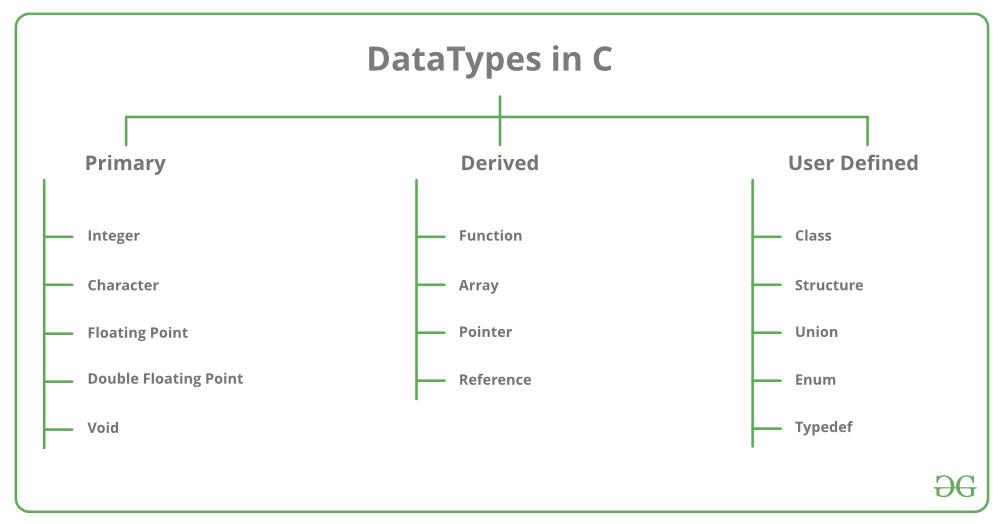 Basic
Input and Output in C
Basic
Input and Output in C
C language has standard libraries that allow input and output in a program. The stdio.h or standard
input output library in C that has methods for input and output.
scanf()
The scanf() method, in C, reads the value from the console as per the type specified and store it in the
given address.
Syntax:
scanf("%X", &variableOfXType);
where %X is the format specifier in C. It is a way to tell the compiler what type of data is in a
variable and & is the address operator in C, which tells the compiler to change the real value of
variableOfXType, stored at this address in the memory.
printf()
The printf() method, in C, prints the value passed as the parameter to it, on the console screen.
Syntax:
printf("%X", variableOfXType);
where %X is the format specifier in C. It is a way to tell the compiler what type of data is in a
variable and variableOfXType is the variable to be printed.
Operators
in C
In C language, operators are symbols that represent operations to be performed on one or more operands.
They are the basic components of the C programming. In this article, we will learn about all the
built-in operators in C with examples.
What is a C Operator?
An operator in C can be defined as the symbol that helps us to perform some specific mathematical,
relational, bitwise, conditional, or logical computations on values and variables. The values and
variables used with operators are called operands. So we can say that the operators are the symbols that
perform operations on operands.
Types of Operators in C
C language provides a wide range of operators that can be classified into 6 types based on their
functionality:
- Arithmetic Operators
- Relational Operators
- Logical Operators
- Bitwise Operators
- Assignment Operators
- Other Operators
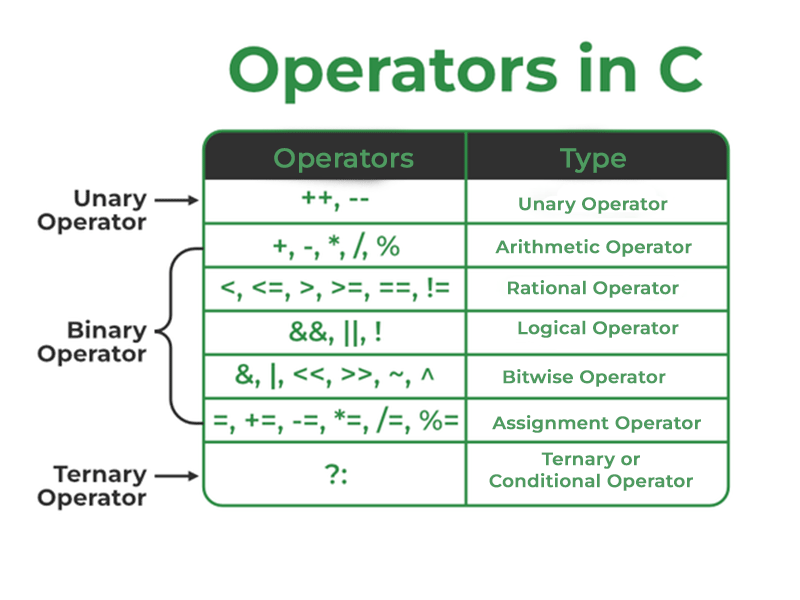 Decision Making in C (if , if..else, Nested if, if-else-if )
Decision Making in C (if , if..else, Nested if, if-else-if )
The conditional statements (also known as decision control structures) such as if, if else, switch, etc. are used for decision-making purposes in C programs.
They are also known as Decision-Making Statements and are used to evaluate one or more conditions and make the decision whether to execute a set of statements or not. These decision-making statements in programming languages decide the direction of the flow of program execution.
Need of Conditional Statements :
There come situations in real life when we need to make some decisions and based on these decisions, we decide what should we do next. Similar situations arise in programming also where we need to make some decisions and based on these decisions we will execute the next block of code. For example, in C if x occurs then execute y else execute z. There can also be multiple conditions like in C if x occurs then execute p, else if condition y occurs execute q, else execute r. This condition of C else-if is one of the many ways of importing multiple conditions.
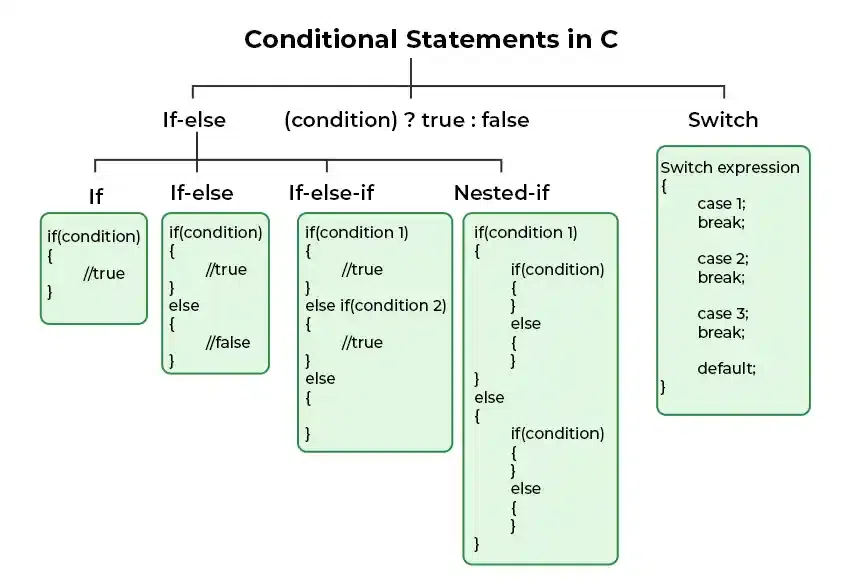 C Functions
C Functions
A function in C is a set of statements that when called perform some specific task. It is the basic building block of a C program that provides modularity and code reusability. The programming statements of a function are enclosed within { } braces, having certain meanings and performing certain operations. They are also called subroutines or procedures in other languages.
In this article, we will learn about functions, function definition. declaration, arguments and parameters, return values, and many more.
Syntax of Functions in C :
The syntax of function can be divided into 3 aspects:
- Function Declaration :
-768.png)
- Function Definition :
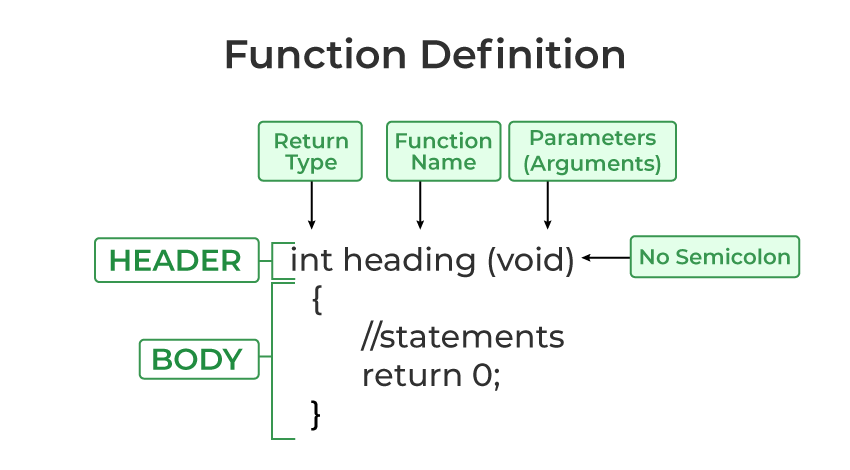
- Function Calls :
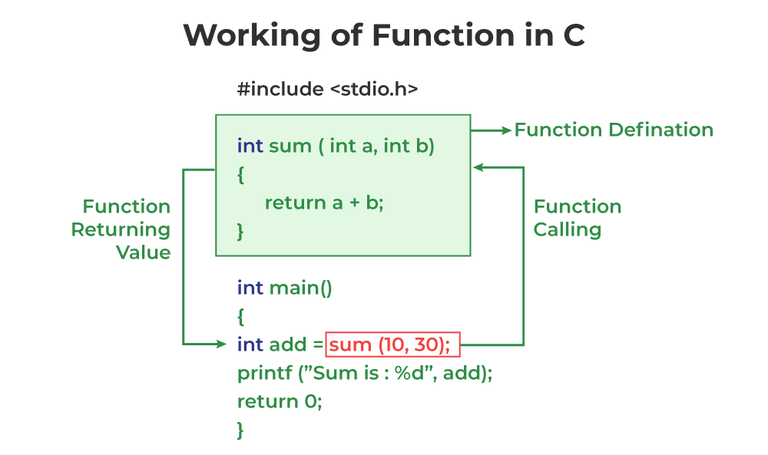
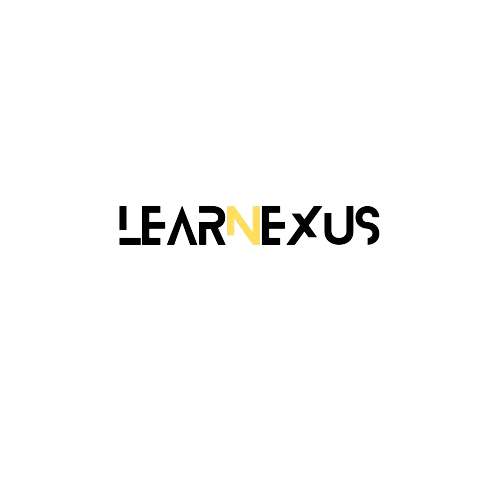




-768.png)

